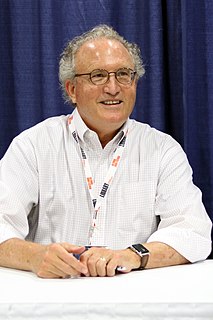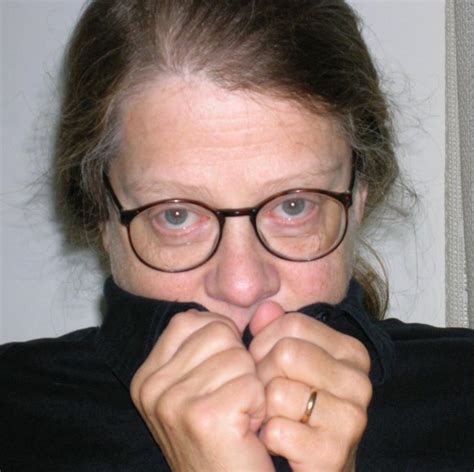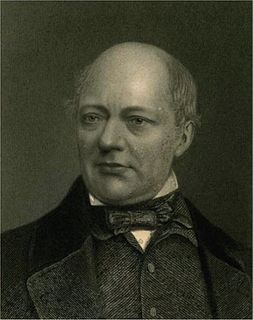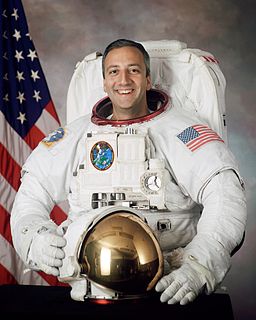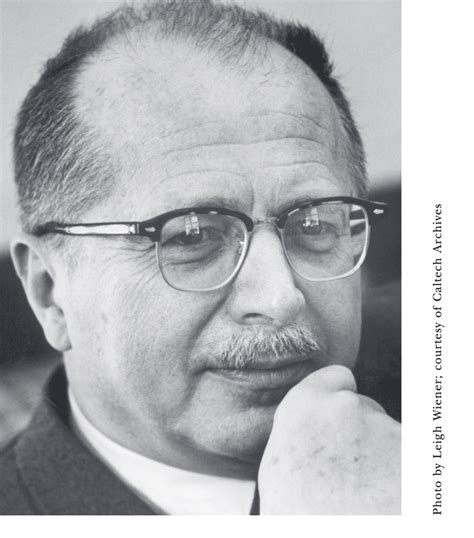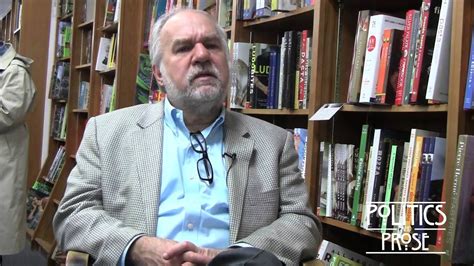Top 211 Telescope Quotes & Sayings - Page 4
Explore popular Telescope quotes.
Last updated on April 20, 2025.
They walked for a while, all silent in their thoughts, until they reached the car and Alec drew a fine telescope from his shirt and handed it to Milo. "Carry this with you on your journey," he said softly, "for there is much worth noticing that often escapes the eye. Through it you can see everything from the tender moss in a sidewalk crack to the glow of the farthest star — and, most important of all, you can see things as they really are, not just as they seem to be. It's my gift to you.
There are stars in the night sky that look brighter than the others, and when you look at them through a telescope you realize you are looking at twins. The two stars rotate around each other, sometimes taking nearly a hundred years to do it. They create so much gravitational pull there's no room around for anything else. You might see a blue star, for example, and realize only later that it has a white dwarf as a companion - that first one shines so bright, by the time you notice the second one, it's too late.
...Which brings me to the Hubble Space Telescope's newest images. If it's wonder that you're looking for, and mystery, don't just scan the photographs. Stop and think about them. Try to imagine the scale. The Earth is just a speck of dust on one distant whirling tentacle of the Milky Way galaxy, which contains billions of stars. A 'collision' of galaxies seems unimaginably large - and yet it is something scientists long ago imagined... The imaginings of pseudoscience are feeble by comparison.
Of all man’s instruments, the most wondrous, no doubt, is the book. The other instruments are extensions of his body. The microscope, the telescope, are extensions of his sight; the telephone is the extension of his voice; then we have the plow and the sword, extensions of the arm. But the book is something else altogether: the book is an extension of memory and imagination.
Alas! What is man? Whether he be deprived of that light which is from on high, of whether he discard it, a frail and trembling creature; standing on time, that bleak and narrow isthmus between two eternities, he sees nothing but impenetrable darkness on the one hand, and doubt, distrust, and conjecture, still more perplexing, on the other. Most gladly would he take an observation, as to whence he has come, or whither he is going; alas, he has not the means: his telescope is too dim, his compass too wavering, his plummet too short.
To walk into Bill Olsen's poems is to enter a mind so weirdly curious, you can't be released to sadness, not yet: it's just too surprising. But this book-half microscope, half telescope-shadows grief, our shared and ordinary life where an old neighbor obsessively gathers twigs to wish back the tree, where the moon is regularly ‘sawn in half,’ where sprinklers give off ‘little wet speeches.’ What else? It's brilliantly instead and odd.
You can put this another way by saying that while in other sciences the instruments you use are things external to yourself (things like microscopes and telescopes), the instrument through which you see God is your whole self. And if a man's self is not kept clean and bright, his glimpse of God will be blurred - like the Moon seen through a dirty telescope. That is why horrible nations have horrible religions: they have been looking at God through a dirty lens.
Invite the Sacred to participate in your joy in little things, as well as in your agony over the great ones. There are as many miracles to be seen through a microscope as through a telescope. Start with little things seen through the magnifying glass of wonder, and just as a magnifying glass can focus the sunlight into a burning beam that can set a leaf aflame, so can your focused wonder set you ablaze with insight. Find the light in each other and just fan it.
One of the stories I love is how Gutenberg’s printing press set off this interesting chain reaction, where all of a sudden people across Europe noticed for the first time that they were farsighted, and needed spectacles to read books (which they hadn’t really noticed before books became part of everyday life); which THEN created a market for lens makers, which then created pools of expertise in crafting lenses, which then led people to tinker with those lenses and invent the telescope and microscope, which then revolutionized science in countless ways.
Culture is not created by command. It creates itself, arising spontaneously from the necessities of men and their social cooperative activity. No ruler could ever command men to fashion the first tools, first use fire, invent the telescope and the steam engine, or compose the Iliad. Cultural values do not arise by direction of higher authorities. They cannot be compelled by dictates nor called into life by the resolution of legislative assemblies.
The computer is a tool akin to a telescope or a microscope; a tool that opens vast frontiers of possibilities and brings them to light; a tool that captures the elemental and animates or holds it still at will; a tool that captures the organic flow of the earth's crust or the wash of a wave, and creates an impossible symmetry, an elemental Rorshach pattern ripe for continued exploration, divulging a thousand revelations.
I would not see our candle blown out in the wind. It is a small thing, this dear gift of life handed us mysteriously out of immensity. I would not have that gift expire... If I seem to be beating a dead horse again and again, I must protest: No! I am beating, again and again, living man to keep him awake and move his limbs and jump his mind... What's the use of looking at Mars through a telescope, sitting on panels, writing books, if it isn't to guarantee, not just the survival of mankind, but mankind surviving forever!
Whether he sleeps or wakes,--whether he runs or walks,--whether he uses a microscope or a telescope, or his naked eye,--a man never discovers anything, never overtakes anything, or leaves anything behind, but himself. Whatever he says or does, he merely reports himself. If he is in love, he loves; if he is in heaven, he enjoys; if he is in hell, he suffers. It is his condition that determines his locality.
Culture implies all which gives the mind possession of its own powers, as languages to the critic, telescope to the astronomer. Culture alters the political status of an individual. It raises a rival royalty in a monarchy. 'Tis king against king. It is ever a romance of history in all dynasties--the co-presence of the revolutionary force in intellect. It creates a personal independence which the monarch cannot look down, and to which he must often succumb.
Oh, my dear Kepler, how I wish that we could have one hearty laugh together. Here, at Padua, is the principal professor of philosophy, whom I have repeatedly and urgently requested to look at the moon and planets through my glass, [telescope] which he pertinaciously refuses to do. Why are you not here? what shouts of laughter we should have at this glorious folly! and to hear the professor of philosophy at Pisa laboring before the grand duke with logical arguments, as if with magical incantations, to charm the new planets out of the sky.
The mighty steam-engine has its germ in the simple boiler in which the peasant prepares his food. The huge ship is but the expansion of the floating leaf freighted with its cargo of atmospheric dust; and the flying balloon is but the infant's soap-bubble lightly laden and overgrown. But the Telescope, even in its most elementary form, embodies a novel and gigantic idea, without an analogue in nature, and without a prototype in experience
Now, almost one hundred years later, it is difficult to fully appreciate how much our picture of the universe has changed in the span of a single human lifetime. As far as the scientific community in 1917 was concerned, the universe was static and eternal, and consisted of a one single galaxy, our Milky Way, surrounded by vast, infinite, dark, and empty space. This is, after all, what you would guess by looking up at the night sky with your eyes, or with a small telescope, and at the time there was little reason to suspect otherwise.
What can be more soul shaking than peering through a 100-inch telescope at a distant galaxy, holding a 100-million-year-old fossil or a 500,000-year-old stone tool in one's hand, standing before the immense chasm of space and time that is the Grand Canyon, or listening to a scientist who gazed upon the face of the universe's creation and did not blink?
We debase the richness of both nature and our own minds if we view the great pageant of our intellectual history as a compendium of new information leading from primal superstition to final exactitude. We know that the sun is hub of our little corner of the universe, and that ties of genealogy connect all living things on our planet, because these theories assemble and explain so much otherwise disparate and unrelated information not because Galileo trained his telescope on the moons of Jupiter or because Darwin took a ride on a Galápagos tortoise.
The reason we have the stars twinkle at night is because the light is being kind of blurred by the atmosphere around the Earth. That is why the Hubble Space Telescope is so good, because it is above the atmosphere. So it is kind of like looking at the sun from the bottom of a swimming pool, versus looking at the sun above the swimming pool.
Supposing we knew that up there is some alien civilization and it's sending radio signals our way we should not tell the public where that is. We could say that we've picked up a signal, but we should not tell them where for the simple reason that anybody could commandeer a radio telescope, set themselves up as some self appointed spokesperson of mankind and start beaming all sorts of crazy messages back to the aliens.
The modern way with God is to set him at a distance, if not to deny him altogether; and the irony is that modern Christians, preoccupied with maintaining religious practices in an irreligous world, have themselves allowed God to become remote...for churchmen who look at God through the wrong end of the telescope, so reducing him to pigmy proportions, cannot hope to end up as more than pigmy Christians.
Students using astrophysical textbooks remain essentially ignorant of even the existence of plasma concepts, despite the fact that some of them have been known for half a century. The conclusion is that astrophysics is too important to be left in the hands of astrophysicists who have gotten their main knowledge from these textbooks. Earthbound and space telescope data must be treated by scientists who are familiar with laboratory and magnetospheric physics and circuit theory, and of course with modern plasma theory.
We have looked first at man with his vanities and greed and his problems of a day or a year; and then only, and from this biased point of view, we have looked outward at the earth he has inhabited so briefly and at the universe in which our earth is so minute a part. Yet these are the great realities, and against them we see our human problems in a different perspective. Perhaps if we reversed the telescope and looked at man down these long vistas, we should find less time and inclination to plan for our own destruction.
At the age of three I began to look around my grandfather's library. My first knowledge of astronomy came from reading and looking at pictures at that time. By the time I was six I remember him buying books for me. ... I think I was eight, he bought me a three-inch telescope on a brass mounting. ... So, as far back as I can remember, I had an early interest in science in general, astronomy in particular.
...the mind is more powerful than any imaginable particle accelerator, more sensitive than any radio receiver or the largest optical telescope, more complete in its grasp of information than any computer: the human body- its organs, its voice, its powers of locomotion, and its imagination- is a more-than-sufficient means for the exploration of any place, time or energy level in the universe.
It is impossible not to feel stirred at the thought of the emotions of man at certain historic moments of adventure and discovery - Columbus when he first saw the Western shore, Pizarro when he stared at the Pacific Ocean, Franklin when the electric spark came from the string of his kite, Galileo when he first turned his telescope to the heavens. Such moments are also granted to students in the abstract regions of thought, and high among them must be placed the morning when Descartes lay in bed and invented the method of co-ordinate geometry.
This Excellent Mathematician having given us, in the Transactions of February last, an account of the cause, which induced him to think upon Reflecting Telescopes, instead of Refracting ones, hath thereupon presented the curious world with an Essay of what may be performed by such Telescopes; by which it is found, that Telescopical Tubes may be considerably shortened without prejudice to their magnifiying effect. On his invention of the catadioptrical telescope, as he communicated to the Royal Society.
I read not so long ago about the construction of a large telescope in Chile's Atacama Desert, where rainfall can average a millimetre a year and the air is fifty times as dry as the air in Death Valley. Needless to say, skies over the Atacama are pristine. The pilgrim astronomer ventures to the earth's ravaged reaches in order to peer more keenly at other worlds, and I suppose the novelist is up to something similar.


